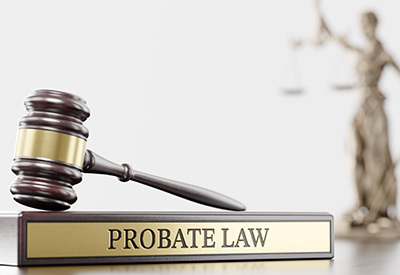Probate is essentially a court-supervised procedure that involves gathering a deceased individual's assets, paying off any liabilities such as debts and taxes and ultimately distributing the remaining assets to the rightful heirs or beneficiaries. It’s a legal process intended to ensure that the distribution of the estate is conducted fairly and in accordance with the law.
During probate, a court validates the deceased person's will, if one exists, and appoints an executor or personal representative. This appointed individual is then responsible for overseeing the entire process, which includes settling any outstanding obligations and ensuring the proper allocation of the deceased's estate to the beneficiaries as specified in the will, or as determined by state intestacy laws if no will exists.
However, the complexity of probate multiplies when it involves assets located in multiple states, known as multi-state probate. This situation typically arises when a decedent owned property, such as real estate, businesses, or significant personal assets like vehicles or bank accounts, in different states. Each state has its own set of probate laws, and an asset located in a particular state generally must be probated according to that state’s laws. This means that if an individual owned property in three different states, potentially three different probate proceedings might need to be initiated, each adhering to a distinct set of legal guidelines. This requirement can lead to a complicated web of legal intricacies, with each state's probate process potentially varying in terms of duration, costs and procedural requirements.
Understanding multi-state probate is not only crucial but often daunting for executors, who are usually family members or close friends appointed by the deceased or the court to manage the estate. An executor, also commonly known as a personal representative, must navigate through this labyrinth of varied state laws and regulations, which can significantly impact the administration and distribution of the estate. This includes understanding the different probate court systems, state-specific filing requirements, unique tax implications and potential conflicts between state laws.
For beneficiaries, multi-state probate can introduce delays in receiving their inheritance and may involve complex legal processes, especially if there are disputes or ambiguities in the will. The process can be further complicated if the beneficiaries reside in different states than where the assets are located.
Moreover, other interested parties, such as creditors, who may have claims against the estate, or charitable organizations named in the will, must also navigate this complex terrain. They must understand the different procedures and timelines in each state to assert their claims or receive their bequests.
Understanding multi-state probate

Multi-state probate is a complex legal process that arises when an individual's estate includes assets that are located in more than one state. This situation is increasingly common in today's mobile society, where people often own property, businesses and other significant assets in various locations across the country. Key scenarios triggering multi-state probate typically involve real estate holdings in different states, business interests that cross state boundaries or diverse investment portfolios with assets governed by different state laws.
A striking example of how state laws can vary is seen in the recognition of oral wills, known as "nuncupative wills." Some states allow these wills under specific circumstances, often involving imminent peril or last illness, and with certain limitations such as the value of the estate or the type of property that can be bequeathed. Other states, however, do not recognize oral wills at all, strictly requiring that all wills be written and executed following specific legal formalities to be considered valid.
Another area where state laws diverge significantly is in the treatment of intestate succession – how an estate is distributed when there is no valid will. Some states have laws that favor spouses, while others might have laws that provide for more equitable distribution among all heirs, including children, parents and siblings. Additionally, states can have differing rules regarding the appointment of executors or administrators, bond requirements for these individuals and the rights and powers they possess in managing the estate.
The disparities in state laws also extend to tax implications. Each state has its own tax regulations pertaining to estates, which can impact both the estate itself and the beneficiaries. This can include state estate taxes, inheritance taxes and the manner in which these taxes interact with federal tax obligations.
For executors and administrators, this complexity necessitates a thorough and nuanced understanding of each state’s probate laws where assets are located. Failure to adhere to the specific legal requirements in each state can result in significant delays, increased costs and potential legal challenges to the estate administration.
Challenges for executors
Executors, often thrust into the role due to their relationship with the deceased rather than their legal expertise, face a myriad of challenges in multi-state probate scenarios. Their primary responsibility is to manage the estate according to the wishes of the deceased, as well as in compliance with legal requirements, which becomes significantly more complex when assets are spread across different states.
One of the primary challenges is the need to understand and navigate the varying probate laws and procedures of each state where assets are located. Probate laws differ widely in terms of how estates are processed, the rights and responsibilities of executors and even the definitions of key terms. For instance, the process to validate a will in one state might be straightforward, while another state might require a more rigorous court proceeding. This variance necessitates that executors either become quickly versed in these differences or seek the assistance of legal professionals who focus on probate law in each respective state.
Given the legal complexities, executors often need to coordinate with attorneys who have specific expertise in the probate laws of their state. This coordination can be challenging, as it requires the executor to manage multiple legal relationships, often in different time zones, and ensure that each attorney is provided with the information and documentation needed to proceed with their part of the probate process.
Managing assets across state lines

Managing assets like real estate, bank accounts and personal property across state lines demands not only a deep understanding of legal variances but also meticulous attention to detail. Real estate, in particular, presents significant challenges due to the varying laws regarding property transfer, taxes and even maintenance responsibilities during the probate process. Bank accounts and other financial assets may be subject to different procedures for transfer or closure, depending on state laws.
Multi-state probate often takes longer to resolve than a single-state process. Each state's probate process can run on a different timeline, and coordinating these can be like aligning multiple complex schedules. This prolongation can be stressful for both executors and beneficiaries who may be waiting for the resolution of the estate.
Financial burdens are another significant concern. Executors may have to deal with multiple probate fees, attorney fees and even travel expenses if they need to be physically present in a different state for court proceedings or to manage property. These costs can add up quickly and, in some cases, may even impact the overall value of the estate.
What issues do beneficiaries face with probate in multiple states?
Beneficiaries of estates that span multiple states often find themselves dealing with numerous legal and financial challenges, primarily stemming from the complex nature of multi-state probate.
A primary concern for beneficiaries in multi-state probate scenarios is the potential delay in the settlement of the estate. Unlike a straightforward, single-state probate process, multi-state probate involves coordinating legal proceedings across different jurisdictions, each with its own timelines and procedural requirements. These variations can lead to an elongated process, as each state may have different speeds at which probate matters are resolved. For beneficiaries, this means that the receipt of their inheritance can be significantly delayed, which can be particularly challenging if they are depending on this inheritance for financial support or planning.
In addition to delays, beneficiaries must also navigate the complexities arising from variations in inheritance laws across different states. These laws dictate how assets are distributed, especially in cases where there is no will or the will is contested. For example, some states have community property laws that affect how marital assets are distributed, while others follow common law principles. Understanding these legal nuances is crucial for beneficiaries to have realistic expectations about their inheritance.
The tax implications of inheriting assets from multiple states add another layer of complexity. States vary in terms of inheritance tax, estate tax and income tax on inherited assets. Beneficiaries may find themselves needing to understand and comply with multiple tax regimes, which can be both confusing and financially impactful. In some cases, the tax obligations in different states may significantly reduce the overall value of the inheritance.
For many beneficiaries, understanding and effectively participating in the multi-state probate process can be daunting. The legal jargon, procedural requirements and need to interact with attorneys and courts in multiple states can be overwhelming, especially for those who are grieving the loss of a loved one.

The complexity and length of the multi-state probate process can also heighten emotions and lead to conflicts among beneficiaries, particularly if the distribution of assets becomes contentious. Disagreements may arise over the interpretation of the will, the valuation of assets, or the perceived fairness of the distribution. These conflicts can not only prolong the probate process but also lead to strained or broken relationships among family members or other beneficiaries.
Impacts on other interested parties
The complexities of multi-state probate extend beyond the immediate circle of executors and beneficiaries, significantly impacting various other parties with vested interests in the estate. Creditors, charitable organizations and business partners, among others, can find themselves entangled in a web of legal intricacies, especially when dealing with estates that span multiple jurisdictions.
Creditors play a pivotal role in the probate process, as they are entitled to repayment from the estate before any distribution to beneficiaries. In multi-state probate, creditors may face challenges in asserting their claims, particularly if they are unfamiliar with the varying probate laws and procedures of each state involved. Each state has its own rules regarding the notification of creditors, the submission of claims and the priority of debts. For instance, secured creditors, such as mortgage holders, may have different rights and remedies in different states. Unsecured creditors, like credit card companies, may find the process of debt collection prolonged due to the complexities of multi-state proceedings.
The process of settling debts can become particularly intricate if the estate lacks sufficient liquidity to satisfy all debts in each state. This scenario may require careful legal navigation to determine which creditors are paid and in what order, based on the prioritization laws of each state.
Charitable organizations named as beneficiaries in a will can also face unique challenges in multi-state probate situations. The timing of their receipt of donations or bequests can be significantly delayed due to the elongated probate process. Additionally, charities may need to navigate different state laws regarding charitable bequests, especially if the laws governing the estate differ from those in the state where the charity operates. Understanding these legal nuances is crucial for charities to effectively manage their expectations and financial planning.
For business partners and co-owners of joint property, multi-state probate can present significant logistical and legal challenges. Jointly owned businesses or properties that span across state lines may be subject to different probate and succession laws, affecting the continuity of business operations or property management. Business partners may need to deal with temporary freezes on assets, impacting the operational liquidity of the business. There may also be complications in valuing and transferring the deceased partner’s share of the business, especially if the partnership agreements do not clearly delineate succession plans.
Joint property ownership, such as in real estate, can also be complex. Different states may have varying laws on how joint property is handled in probate, particularly if the owners were tenants in common rather than joint tenants with rights of survivorship. This can lead to disputes or confusion over the division and distribution of property, especially if the co-owners have differing intentions or plans for the property.
Legal and financial considerations

One of the most daunting aspects for executors and beneficiaries in multi-state probate is understanding and fulfilling the tax obligations that arise in each state where assets are held. These tax considerations can include state estate taxes, inheritance taxes and income taxes on inherited assets.
- State estate taxes. While federal estate taxes have high exemption thresholds, several states impose their own estate taxes, often with lower exemption levels. This means an estate might not owe federal estate tax but still be liable for state estate taxes in one or more states. Each state's tax rate and exemption threshold can vary significantly, making it imperative for executors to accurately assess the estate's tax liabilities in each state.
- Inheritance taxes. Unlike estate taxes, which are levied on the overall value of the estate, inheritance taxes are imposed on the beneficiaries receiving the assets. Only a handful of states impose inheritance taxes, and each has its own rules regarding rates and exemptions, often based on the beneficiary's relationship to the decedent.
- Income taxes on inherited assets. Certain types of inherited assets, such as retirement accounts or investment income, may be subject to income tax. The rules governing these taxes can vary by state, particularly in terms of how income is sourced and taxed.
Navigating these varied tax landscapes requires careful planning and, often, the expertise of tax professionals familiar with the intricacies of state-specific tax laws.
Proactive estate planning is key to minimizing the challenges of multi-state probate. This involves not only drafting a clear and comprehensive will but also utilizing other legal instruments to simplify the probate process and ensure assets are transferred according to the decedent’s wishes.
Trusts can be a powerful tool in estate planning, particularly for property held in multiple states. By placing assets in a trust, they can often be managed and distributed without the need for probate, thereby bypassing the complexities of multi-state probate. Different types of trusts, such as revocable living trusts or irrevocable trusts, offer varying levels of control and protection, depending on the needs and goals of the estate planner.
Structuring assets for joint ownership with rights of survivorship or designating beneficiaries (as in the case of life insurance policies or retirement accounts) can allow these assets to pass directly to the co-owner or beneficiary, outside of the probate process.
Strategic gifting during the lifetime of the estate owner can also be an effective way to manage estate size and reduce the complexities associated with multi-state probate.
Other legal instruments can also play a crucial role in simplifying asset transfer in multi-state probate scenarios.
Durable powers of attorney for financial and health care decisions can ensure that critical decisions regarding the estate and the well-being of the individual can be made if they become incapacitated.
Advance directives, meanwhile, are documents that outline the individual’s wishes regarding medical treatment and end-of-life care, helping to avoid conflicts and confusion during difficult times.
Conclusion
Multi-state probate is a multifaceted and intricate process that presents unique challenges for executors, beneficiaries, and other interested parties. The variation in state laws regarding probate procedures, estate and inheritance taxes and legal rights of all parties involved adds layers of complexity to the administration of estates spanning multiple jurisdictions. Executors must navigate a maze of legal requirements, potentially in different states, requiring a robust understanding of varying laws or the guidance of specialized legal professionals. Beneficiaries, on their part, face potential delays and financial implications, often exacerbated by the intricacies of differing state laws and tax regimes.
This complexity underscores the vital importance of proactive and strategic estate planning. Utilizing legal tools such as trusts, joint ownership arrangements and specific beneficiary designations can significantly streamline the probate process, easing the burden on executors and beneficiaries alike. Moreover, understanding and planning for the tax implications in each state where assets are located is crucial to preserve the estate's value and ensure fair and lawful distribution.
The challenges of multi-state probate also highlight the importance of clear communication and cooperation among all parties involved. By effectively managing expectations and responsibilities, many of the conflicts and delays inherent in multi-state probate can be mitigated.
Ultimately, while multi-state probate poses significant challenges, careful planning, legal guidance and effective management can help navigate these complexities, ensuring that the final wishes of the deceased are honored and the rights and interests of all parties are protected.



